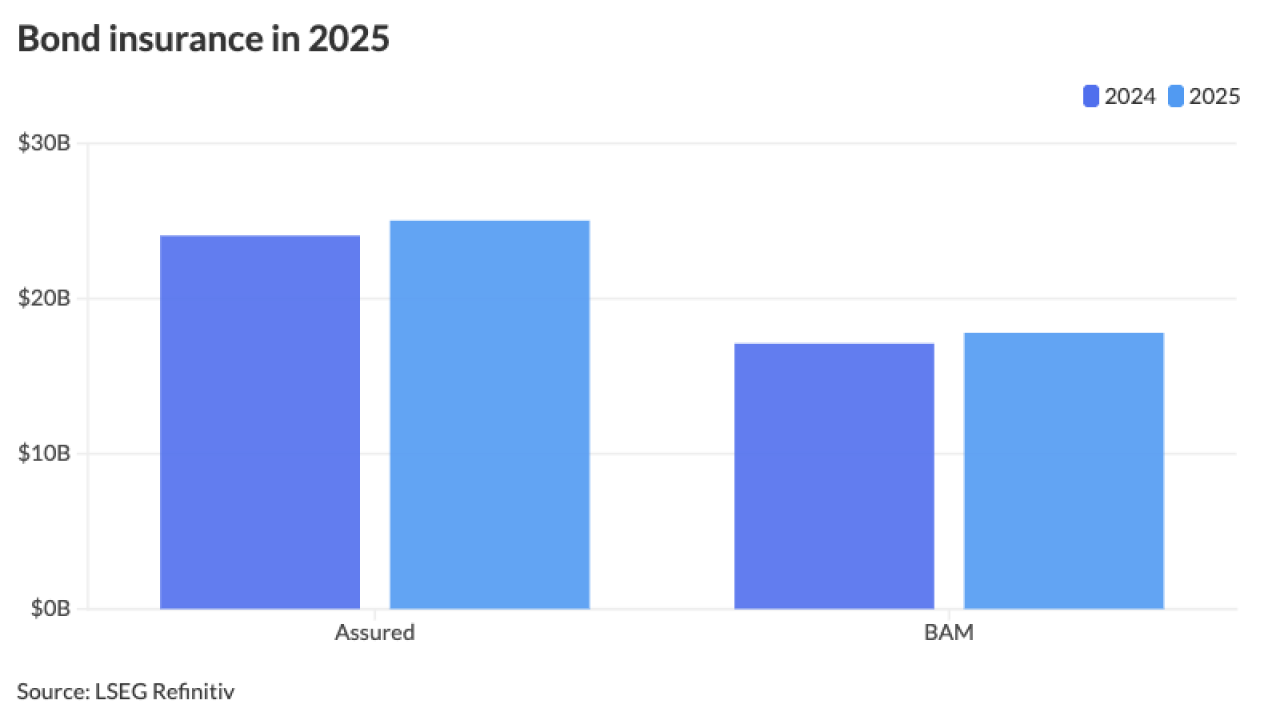The trio of House Democrats who will lead the party next year bring backgrounds in state and local politics to Congress, though it's unclear whether that — or anything— will translate into a direct benefit for the municipal market agenda.
The House of Representatives will see new leadership in the wake of midterms that gave Republicans a slight majority and Democratic House Speaker Nancy Pelosi's decision to step down.

On the Republican side, California Rep. Kevin McCarthy was nominated earlier this month to be speaker but it remains unclear if he will have sufficient support to win the party's Jan. 3 floor election for speaker. Louisiana Rep. Steve Scalise is set to be incoming House majority leader.
On the Democratic side, New York Rep. Hakeem Jeffries will take over Pelosi's top spot in the House as the next minority leader. Massachusetts Rep. Katherine Clark will become minority whip and California Rep. Pete Aguilar will become the new Democratic caucus chair, and majority leader if the Democrats win back a majority in 2024.
Jeffries and Clark were both state lawmakers in their pre-Congress careers. Aguilar served as the mayor of Redlands, California from 2010 to 2014 and was the president of the Inland Empire Division of the League of California Cities.
"State experience is always helpful and with Aguilar on the team, you've got the local influence that [shows] as a former mayor, he does get it," said Emily Brock, federal liaison for the Government Finance Officers Association.
The State of New York, one of the muni market's largest issuers, takes center stage with the election of Jeffries, who represents sections of New York City, coupled with longtime Senate leader Chuck Schumer. That may be helpful for proponents of eliminating or lifting the state and local tax deduction cap.
Experience with state and local leadership is generally considered a positive for the muni industry, but the experience doesn't always stick on the federal level, advocates said.
"Once they get into Congress, they focus on higher-profile issues, whether it be international or domestic," said Charles Samuels of Mintz Levin and counsel to the National Association of Health & Educational Facilities Finance Authorities.
"That is why the municipal finance caucus, for example, is important because we do find some members who are willing to put time into public finance issues and we need to support their important efforts.
The
Kentucky Republican Rep. Andy Barr, who sits on the House Financial Services Committee, is current co-vice chair, and it remains to be seen if he will ascend to co-chair.
Public finance lobbyists generally view their political agenda as solidly bipartisan and say they are agnostic on party control.
"All of our issues are bipartisan issues," said Dillon Gibbons, policy director for the National Association of State Treasurers. Among other things, NAST advocates for traditional muni items like the restoration of tax-exempt advance refunding and the preservation of the tax exemption.
NAST will hold a legislative conference in February, when many of its members will visit with key lawmakers and staff on the Hill, Gibbons said.
"Treasurers can serve as a resource to folks making significant decisions on public finance," he said. A divided Congress may "provide an opportunity for greater focus on bipartisan issues like ours."
The rollout of the Infrastructure Investment and Jobs Act will be a major focus in the next Congress, said Brock. As the federal funds enter the second year of distribution, the GFOA will stay focused on its "funding versus financing" message, she said.
"There's vested interest in both parties for the successful rollout of the IIJA," she said. "Our strategy will be that this $560 billion [of new money] in the IIJA is a shot of adrenaline for infrastructure in the U.S., but at the same time we need a supporting market to underpin the 15-, 20- and 30-year life cycle of the infrastructure," Brock said. "We'll be having that conversation with both sides."
The current Congress' passage of major stimulus packages that sent money directly to cities as well as infrastructure and climate change laws is something that local leaders will be "forever grateful" for, said Irma Esparza Diggs, the National League of Cities' senior executive and director of federal advocacy.
"As we enter the 118th Congress, it is critical to build on these past successes by continuing to elevate bipartisan, intergovernmental solutions over partisan politics," Esparza Diggs said.





